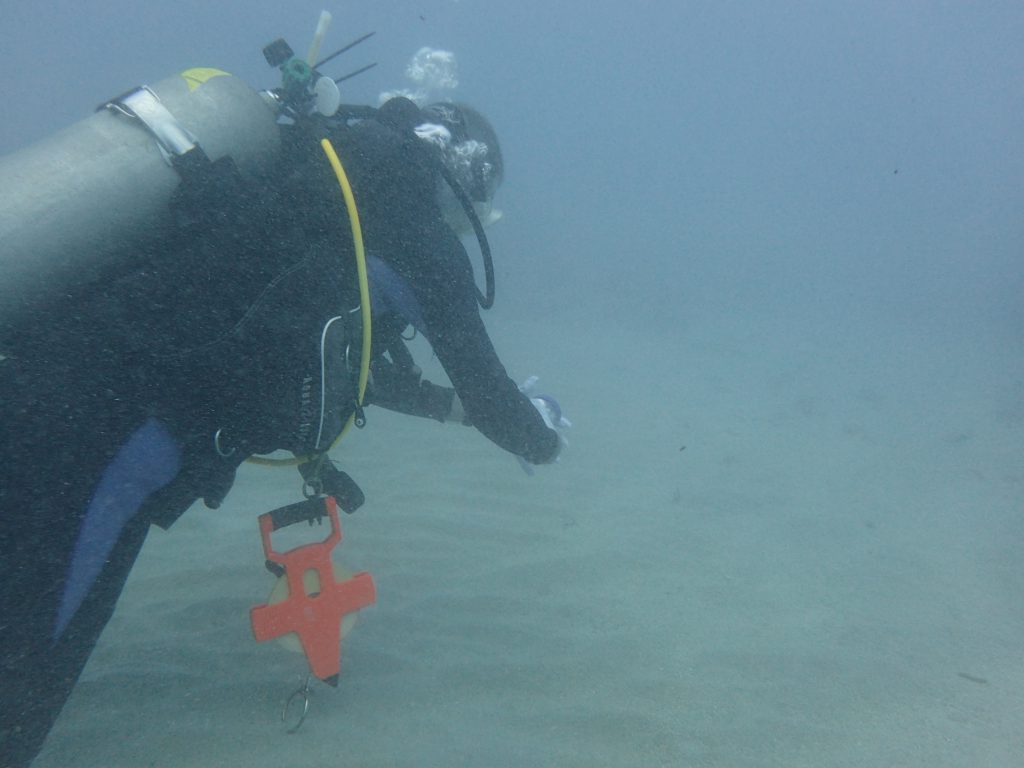The purpose of this project is to provide additional environmental stressor data related to multiple port dredging projects in south Florida, especially as they relate to nearby important and threatened coral ecosystems. Dredge materials have the potential to contain a variety of inorganic (metals) and organic (PAHs, butyltins) pollutants that could make it onto coral reefs and result in toxicity.

Why We Care
Port Everglades’ plans for deepening and widening operations pose a substantial threat to Essential Fish Habitat, ESA-listed coral species, and designated critical habitat. In addition to the physical harm that sedimentation from dredging can cause to reefs, chemical contamination associated with those sediments can have adverse impacts as well. Little field data exists documenting the chemical nature of the sedimentation that is occurring on coral reefs around the Port Everglades dredge site.
What We Are Doing
Collaborating with an existing NOAA National Marine Fisheries Service (NMFS) study at the port, surficial sediment samples will be collected at a subset of existing NMFS coral reef study sites. 18 sites will be sampled by NCCOS for sediment chemistry, both before dredging and after dredging. These samples will be analyzed for the standard suite of NCCOS contaminants, including PAHs, butyltins and metals, and tested for toxicity in the laboratory using standard sea urchin assays. Additionally, data from the previously conducted NOAA/Florida Department of Environmental Protection (FDEP) water quality assessment of the Southeast Florida Coral Reef Ecosystem Conservation Area (SEFCRI region) will be used for a meta analysis of total suspended solids (TSS) and turbidity to determine how closely correlated TSS and turbidity are in the region, and how they are related to existing biological data. This data analysis exercise will focus on potential thresholds for coral reef species which would allow for scientifically defensible water quality based coral reef management.
Benefits of This Work
Understanding the potential threats of sedimentation from dredge projects, including both the physical impacts of sedimentation and the associated chemical stressors, will help inform effective management of coral reefs and future decisions regarding port projects.
